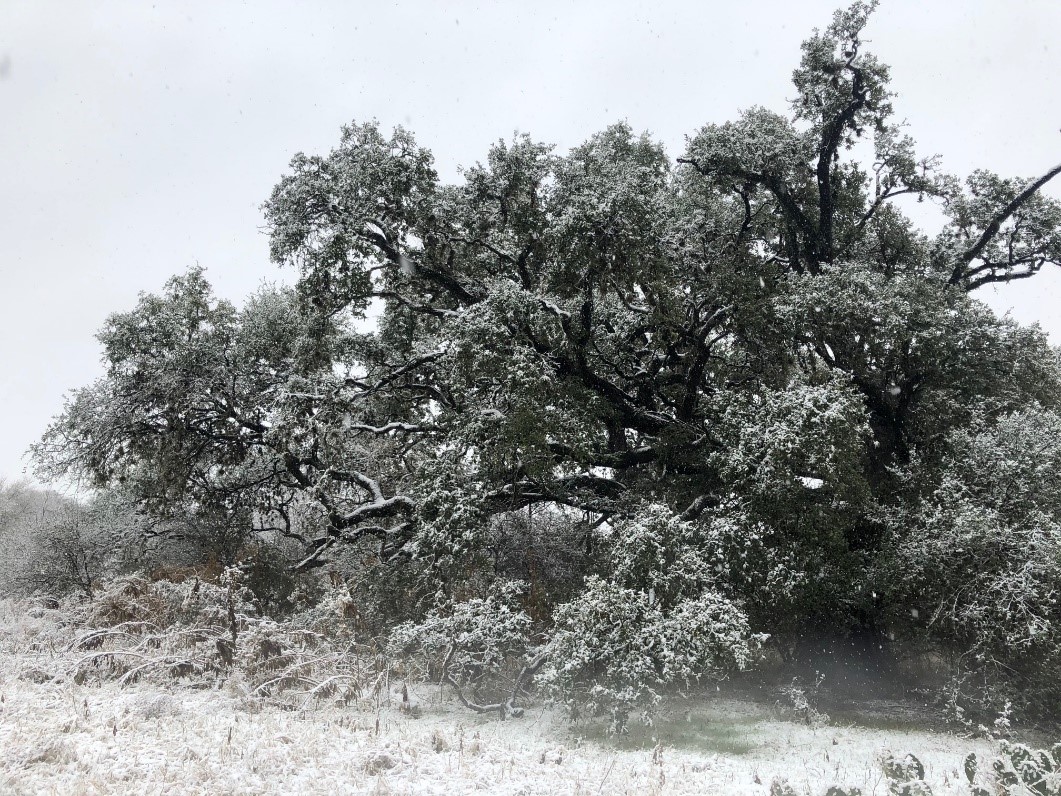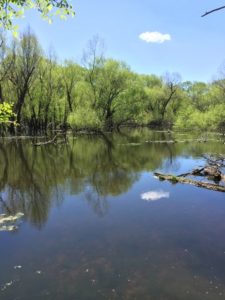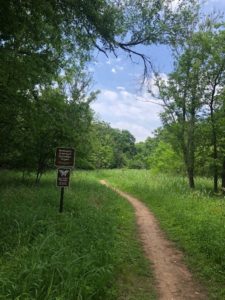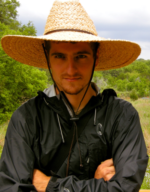Apply now to join our next cohort of Community Science Fellows and Community Leads!

Our mission is to “protect, reclaim, and connect communities to neglected or damaged remnants of the urban wilderness.”
 Ecology Action of Texas is one of Texas’s oldest environmental organizations. First formed in 1969, EA pioneered household recycling and zero waste initiatives in Austin for 45 years. In 2015, we transitioned from a recycling center to focus on environmental remediation at our Circle Acres Nature Preserve in Montopolis. Circle Acres is a former City of Austin landfill used to openly burn trash in the late 1960s. After the City abandoned the property in 1970, illegal dumping occurred on the site for nearly 30 years. In 2005, an EPA Brownfield Remediation project began to reclaim the land. Over 100 tons of materials were removed from the site, including over 30 tons of metals, several tons of shingles, and nearly 800 tires. Today, Circle Acres is amongst the most biodiverse 10 acres anywhere in Austin.
Ecology Action of Texas is one of Texas’s oldest environmental organizations. First formed in 1969, EA pioneered household recycling and zero waste initiatives in Austin for 45 years. In 2015, we transitioned from a recycling center to focus on environmental remediation at our Circle Acres Nature Preserve in Montopolis. Circle Acres is a former City of Austin landfill used to openly burn trash in the late 1960s. After the City abandoned the property in 1970, illegal dumping occurred on the site for nearly 30 years. In 2005, an EPA Brownfield Remediation project began to reclaim the land. Over 100 tons of materials were removed from the site, including over 30 tons of metals, several tons of shingles, and nearly 800 tires. Today, Circle Acres is amongst the most biodiverse 10 acres anywhere in Austin.
In 2020 we began a partnership with Austin Parks and Rec to restore nearly 70 acres of former hayfields in the parkland that surrounds our preserve in order to reestablish a native riparian forest. Our project, the Montopolis Community Forest Initiative, engages the local community in ecosystem restoration and native habitat enhancement. In the past 6 years, we have leveraged our volunteer base to remove over 2000 bags of trash from the park, install 2 new miles of hiking trails, plant hundreds of native grasses, forbs, and trees, and are beginning a formal education program this fall working with neighborhood schools and youth to help grow a new generation of park stewards.
 Working the AGU Thriving Earth Exchange and NEON would help to quantify the results of the hard work the community has put into restoring the native landscape. Ecology action of Texas is hoping to uncover how effective our land management practices have been regarding plant diversity and biomass, soil carbon sequestration, and water infiltration of soils. We would like to compare these biological and biogeochemical properties from areas of restoration and active stewardship to those that have been “left to be reclaimed” as well as those managed through conventional grooming practices (i.e. mowing) by the city. Through this project we would like to quantifiably demonstrate that the stewardship practices implemented by Ecology Action of Texas have increased the quality of native habitat. It is our hope that this kind of project could gather greater support from city officials for our urban landscape reclamation initiatives.
Working the AGU Thriving Earth Exchange and NEON would help to quantify the results of the hard work the community has put into restoring the native landscape. Ecology action of Texas is hoping to uncover how effective our land management practices have been regarding plant diversity and biomass, soil carbon sequestration, and water infiltration of soils. We would like to compare these biological and biogeochemical properties from areas of restoration and active stewardship to those that have been “left to be reclaimed” as well as those managed through conventional grooming practices (i.e. mowing) by the city. Through this project we would like to quantifiably demonstrate that the stewardship practices implemented by Ecology Action of Texas have increased the quality of native habitat. It is our hope that this kind of project could gather greater support from city officials for our urban landscape reclamation initiatives.
Priorities – Bolster community investment in stewardship; Land Reclamation; Improve land management practices; Increase Biodiversity; Carbon Sequestration
Goals – Develop and implement sampling protocols to assess the efficacy of current land management practices; Demonstrate efficient use of land management resources; Garner support for the extension of reclamation and stewardship practices to other areas managed by the city
Challenges – Limited Budget; Requires Multiple Scientists
Outputs:
NEON Resources: Protocols and Staff to train Volunteers
Timeline: 9-12 Months

Eric Paulus is the Operations Manager at Ecology Action’s Circle Acres Nature Preserve. Before joining Ecology Action, Eric owned a small farm and plant nursery called Regeneration Eco-Farm. Regeneration served as a model urban farm for sustainable production and ecological stewardship. He gained valuable horticultural experience working at various farms, plant nurseries and landscaping companies. He has a BA from the University of Texas at Austin in Geography and History. He has spent time in southern India working on a reforestation project, co-managed a community garden and arboretum, and taught workshops on vermicomposting, Integrated Pest Management and enhancing soil health by increasing organic matter. Aside from stints in Italy, India and Massachusetts, Eric has lived in Austin since 2000. He has a young son and is interested in the soil microbiome, biodiversity and native plants. As a former participant of the Rhizome Collective, Eric took part in the original clean up of Circle Acres in 2004/05 and has seen first-hand how far the site has come from its days as a toxic brownfield.
(Photo coming soon!)

Loagan Clements (she/her) is an Aquatic Field Ecologist with the National Ecological Observatory Network and is entering her third year with the Observatory. An indiscriminate nature lover, she has worked with mammals, birds, fishes, soil, grass, trees, and bugs. She transitioned into ecology after teaching middle school mathematics for two years, looking for a more physical job and time outdoors. Before finishing her first degree she participated in a service learning course in rural Shaxi, China studying the impacts of Globalization on Multiculturalism, during which time she developed a curiosity about how global development can continue through culturally and environmentally productive means. When not wading in the streams of North Central Texas she can be found hiking and kayaking with her dog, Louie, running, practicing yoga, reading, or getting creative with knitting needles, graphite, and plant-based cooking.
Ecology Action of Texas is seeking multiple scientific partners to facilitate soil and plant sampling efforts. Scientists would be expected to participate in the project through its completion (9-12 months). Scientists should be within Travis, Hays, or Williamson counties.
Soils – We are looking at measuring how effectively soils within various areas of the park are functioning as carbon sinks, as well as water infiltration. The scientist(s) assisting with soil research will need to be able to:
Flora – We want to compare the plant biomass and diversity between areas of the park and are seeking scientists who can:
Desired Skills and Expertise
Thriving Earth Exchange asks all scientific partners to work with the community to help define a project with concrete local impact to which they can contribute as pro-bono volunteers and collaborators. This work can also position the scientists and communities to seek additional funding, together, for the next stage.

(c) 2024 Thriving Earth Exchange